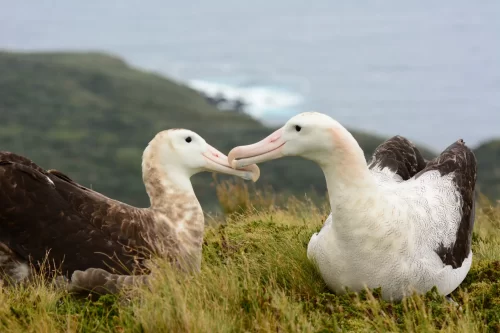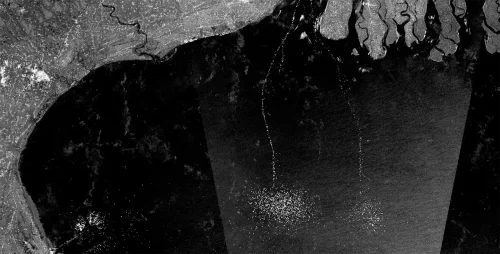How do you see Global Fishing Watch (GFW) supporting Bloomberg’s Vibrant Oceans Initiative?
Until Global Fishing Watch was launched, the world was relying on an inefficient, patchy network of antiquated, siloed, and proprietary data systems to monitor fishing activity around the world. The GFW system is the world’s first view of global fishing activity that allows not only governments, but also the public, to see who is fishing and where at no cost. Because of this transparency, governments have the power to massively increase the knowledge and understanding of what’s happening at sea, and use this to better protect marine resources and ocean sustainability. GFW is providing the data that is shaping the strategies and priorities of our Vibrant Oceans Initiative partners. We are working with partners and governments around the world to scale up the number of vessels visible to the public for free through Global Fishing Watch.
What do you think is the role of transparency in supporting better fisheries management?
We have to shed light on what is happening in the oceans, and greater transparency is critical for better management and accountability. Ocean transparency is core to sustainable marine resource use, food security and economic stability of coastal nations. We’ve seen that when governments improve surveillance, they encourage vessels to comply with fisheries regulations. Public access to vessel data will reduce opportunities for corruption, inform fisheries management decisions, and limit overfishing. To stop illegal fishing, we need to see beyond our shores. Transparency is the solution – and because of Global Fishing Watch we are able to do this.
As a new Global Fishing Watch Board member, what is your vision and hope for the future of Global Fishing Watch?
We want Global Fishing Watch to work with at least 20 countries over the next four years to release vessel data onto the platform. The GFW platform allows countries to share and publish their fishing vessel tracking data. If governments pass transparency laws, it will become increasingly difficult for vessels engaging in illegal activities to go unnoticed. Governments will then be able to more effectively target their limited enforcement and marine management dollars.
As we start 2019, what do you see as the big opportunities in the year ahead for our oceans?
“If you can’t measure it, you can’t manage it” is a core tenet at Bloomberg Philanthropies. We’ve seen that following the data and gathering real, measurable information provides a better understanding of the challenges facing fisheries and marine ecosystems – and supports the science-based strategies to solve them. Now that so many countries are moving toward transparency, I see major opportunities for governments and the public to reveal and address the most pressing issues at sea in a shorter timeframe than has been possible. For example, Indonesia’s work with Global Fishing Watch has contributed to a doubling of their fish stocks in the last five years. That’s important progress in a country where the population gets more than half of their nutritional protein from fish.
What do you think is the greatest contribution Global Fishing Watch can make to creating a healthy, resilient future for our global ocean?
I believe the enforcement of fishing regulations and marine protected areas depends on timely, accurate information – which is increasingly possible because of Global Fishing Watch. What we’ve seen is that Global Fishing Watch empowers governments and the public to expose problems that were once far from shore and out of sight. Global Fishing Watch enables increased transparency. This gives governments and the public the tools to identify areas most in need of protection, fish stocks under greatest pressure, and to highlight for all to see the good actors and the bad.
Antha Williams leads the Environment Program at Bloomberg Philanthropies, supporting Michael Bloomberg’s personal efforts to combat climate change as well as initiatives to improve sustainability of cities, to accelerate the transition to clean energy, combat overfishing and protect coral reefs, and help businesses and investors better understand climate-related financial risks and opportunities. Antha was Consulting Producer of Paris to Pittsburgh, a film about communities across America grappling with the impacts of climate change, and From the Ashes. Previously she served in leadership positions at Corridor Partners, Atlantic Philanthropies, The Beldon Fund, the Campaign for Change, and Green Corps. She sits on the Boards of Directors of the League of Conservation Voters, C40 Cities Climate Leadership Group, the European Climate Foundation, Global Fishing Watch and Oceans5. Antha graduated from Dartmouth College and lives in New York.


